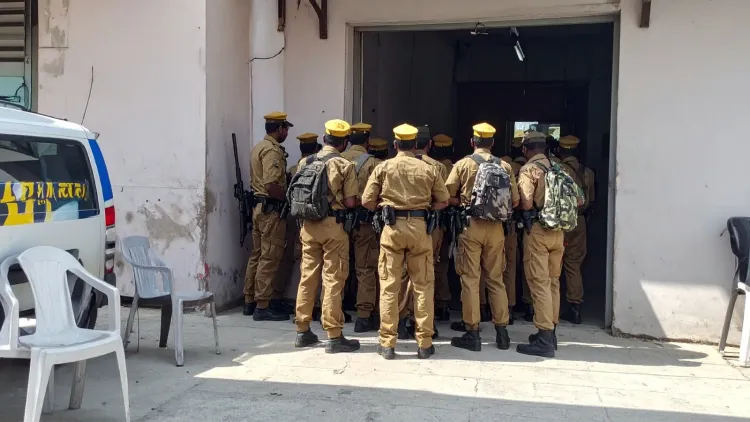Did Chandigarh's Excise Department Uncover Illegal Beer Supply at Local Bar?

Synopsis
Key Takeaways
- Chandigarh's Excise Department is actively enforcing excise laws.
- A bar was found supplying draught beer without a license.
- Suppliers must obtain excise and transport permits.
- Legal actions are being taken against violators.
- The department is implementing a track-and-trace system for better compliance.
Chandigarh, July 31 (NationPress) In a decisive move against the violation of excise regulations, the Chandigarh Excise and Taxation Department conducted an inspection of a bar on Thursday and discovered that it was supplying draught beer without the necessary license required for such operations.
Furthermore, the beer supplier was found to be delivering stock to the bar without the required excise and transport permits.
These incidents indicate a clear disregard for the Excise Act, prompting the department to initiate legal proceedings against both licensees, as stated in an official announcement.
This action exemplifies the department's strict stance on excise violations.
To bolster adherence to regulations, the Excise Department is implementing a track-and-trace system that allows real-time oversight of liquor production, distribution, and transport.
Since the rollout of the excise policy for 2025-26, numerous enforcement operations have led to significant seizures of illegal liquor and legal actions against those who violate the law.
Intelligence gathered from Punjab and neighboring states has been instrumental in aiding the department's efforts to trace unauthorized bottling plants, suppliers, and retail outlets involved in such infractions, according to the department.
Previously, an excise team, acting on a tip-off, executed a surprise inspection at a warehouse in Daria, situated on Chandigarh's outskirts.
The location was found to be unlicensed and unauthorized for liquor storage.
A total of 413 cases of country liquor and 2,090 cases of Indian Made Foreign Liquor (IMFL) were discovered, all stored without valid transport permits or excise passes.
In a related enforcement operation on July 12, around 1,500 cases of both country liquor and IMFL were found at a location not sanctioned by the Excise Department.
The premises were immediately sealed, and a First Information Report (FIR) was filed against the license holder for breaching the conditions of their retail license.
The Excise and Taxation Department reiterates its dedication to preserving government revenue, promoting lawful trading practices, and nurturing a transparent and accountable liquor trade environment throughout Chandigarh.










